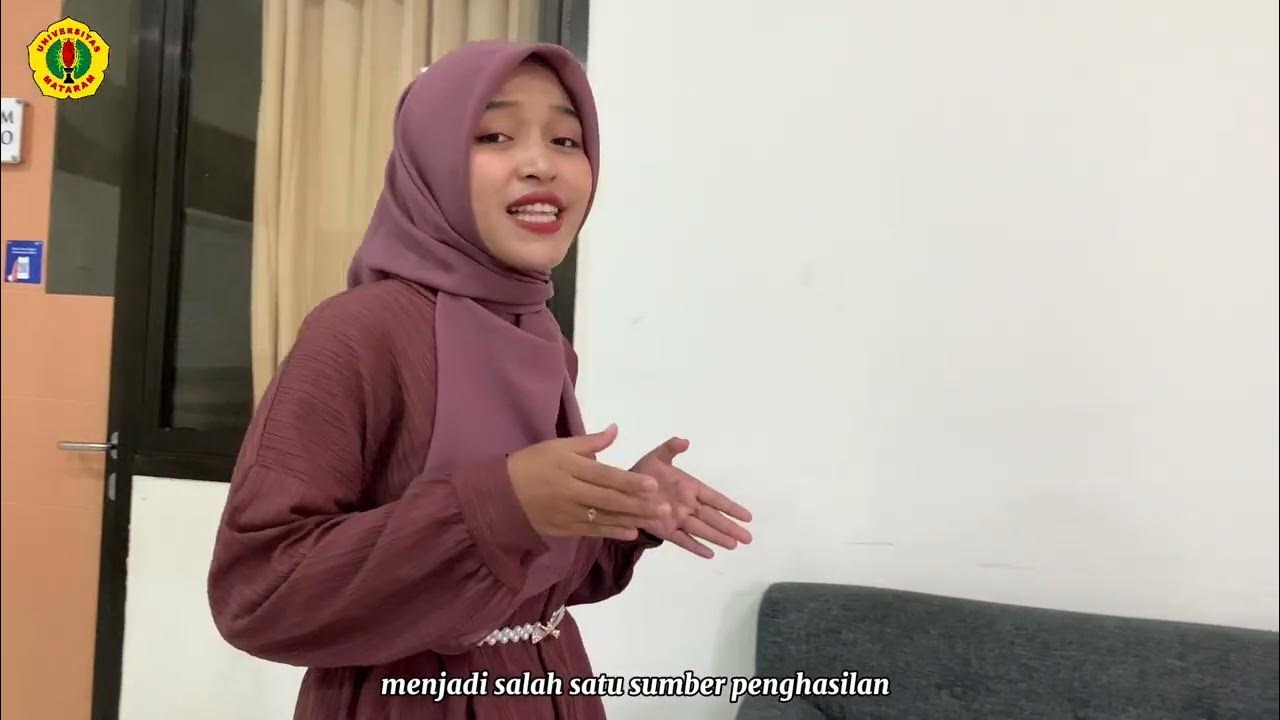JIKA KAMI BERSAMA
Summary
TLDRThe transcript captures the struggles faced by a community in Sumbersari, where illegal mining activities are damaging the local environment, affecting agriculture, and polluting water sources. Farmers express concerns about soil infertility and water contamination, which have drastically impacted their livelihoods. Despite efforts to resist these illegal activities, residents face intimidation, corruption, and threats. However, the community remains committed to protecting their land, aiming to preserve it as a farming and tourism hub. The narrative highlights the ongoing battle to safeguard the environment and their way of life against powerful industrial forces.
Takeaways
- 😀 The soil in Sumbersari has become less fertile due to the lack of proper fertilization, making farming more challenging.
- 😀 The community faces water scarcity, especially during the dry season, exacerbated by the impacts of illegal mining.
- 😀 Farmers rely heavily on irrigation systems, but these are under threat due to environmental degradation from mining activities.
- 😀 The illegal mining activities began in 2022, causing environmental damage such as water pollution and harm to agricultural land.
- 😀 The water near mining areas has changed color, indicating contamination, with potentially harmful acidic properties affecting crops and fish.
- 😀 Before the advent of mining, the area was prosperous, with abundant fish and fertile land, but mining has disrupted this balance.
- 😀 The local community organized to stop the illegal mining activities, taking action to protect their land and resources.
- 😀 Residents have faced intimidation and threats from those involved in illegal mining, including corrupt practices and pressure from authorities.
- 😀 Despite setbacks, the community remains determined to prevent further mining activities and protect their agricultural and environmental heritage.
- 😀 There is a continued struggle for justice and the protection of the environment, with efforts to monitor and prevent the return of illegal mining operations.
Q & A
What issue is the village facing regarding agriculture?
-The village is struggling with the fertility of their land, as the soil is no longer as productive as it used to be. Farmers are unable to grow crops like they did in the past unless they use fertilizers.
How does the weather affect the farming practices in the village?
-The weather plays a significant role in farming. During the dry season, farmers must irrigate their crops multiple times a day, while in the rainy season, they do not need to water the plants at all.
What are the impacts of illegal mining activities in the village?
-Illegal mining has severely impacted the environment, especially the water supply. The water in the rivers and irrigation systems has become polluted with sediment and chemicals, making it unsuitable for farming and fishing. The destruction of natural water sources has led to water shortages during the dry season.
How has the community been affected by the pollution from the mining activities?
-The pollution has led to unhealthy living conditions, with dirty, muddy water affecting both farming and daily life. Farmers can no longer rely on clean water for irrigation, and the fish population in local ponds and rivers has dwindled.
What actions did the villagers take against the illegal mining?
-The villagers took action by halting the illegal mining activities in August 2022. They actively protested and worked together to prevent further mining operations, even taking legal steps to protect their land.
What was the government's response to the illegal mining activities?
-The local authorities attempted to intervene, but there were issues with enforcement. Although mining activities were temporarily halted, they resumed in 2023, causing further concerns for the community.
How has the presence of mining activities affected the local infrastructure?
-Mining activities have led to the deterioration of local roads due to the constant movement of heavy machinery. This has made transportation difficult and dangerous for residents, particularly those in agricultural businesses like poultry farming.
What role did corruption play in the mining operations?
-Corruption was a key factor in the continuation of illegal mining operations. Local officials were allegedly bribed to overlook the mining activities, while intimidation tactics were also used to silence opposition.
How did the mining company use intimidation to silence resistance?
-Intimidation was carried out through both subtle and forceful means. Some villagers were coerced into supporting the mining activities, while others, like community leaders, were threatened with removal from their positions. Some individuals were even reportedly abducted and interrogated.
What is the community's ultimate goal regarding the future of their village?
-The community is committed to preserving their village as an agricultural hub and tourist destination. They are determined to protect their land and resources from the damaging effects of illegal mining and to ensure a sustainable future for their children and future generations.
Outlines

This section is available to paid users only. Please upgrade to access this part.
Upgrade NowMindmap

This section is available to paid users only. Please upgrade to access this part.
Upgrade NowKeywords

This section is available to paid users only. Please upgrade to access this part.
Upgrade NowHighlights

This section is available to paid users only. Please upgrade to access this part.
Upgrade NowTranscripts

This section is available to paid users only. Please upgrade to access this part.
Upgrade Now5.0 / 5 (0 votes)





